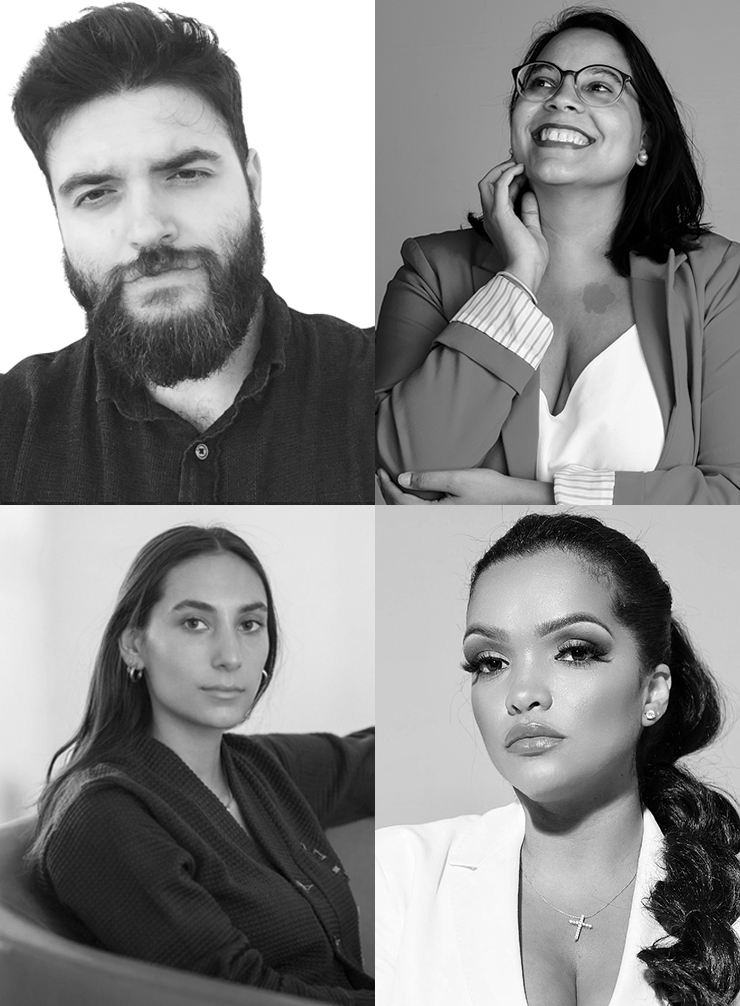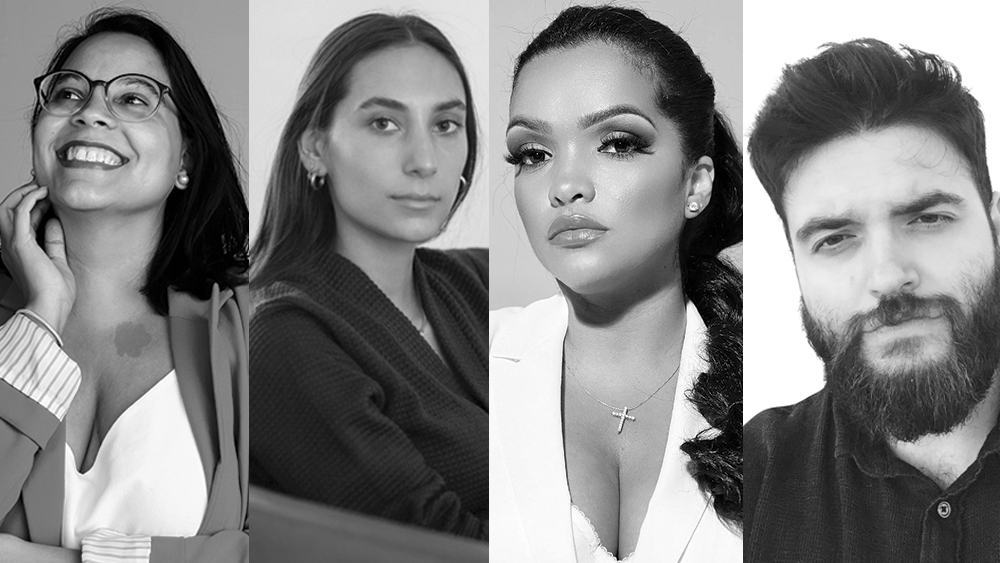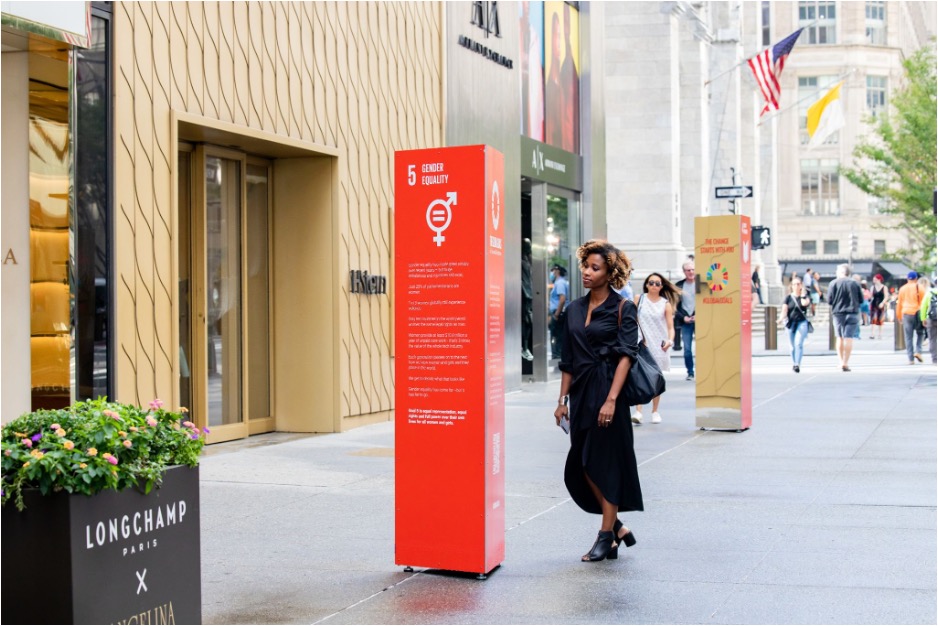Supporting Latinx Professionals with Social, Cultural & Immigration Resources
September 22, 2021
Aldo Araujo



The CFDA in partnership with ELLE magazine gathered industry professionals and creatives on supporting Latinx professionals with social, cultural and immigration resources.
Our panel included Albania Rosario, founder of Fashion Designers of Latin America (FDLA); Lauren Rodriguez, founder and creative director of Lorod; and Yamilka Mena, director of immigration initiatives at the Hispanic Federation. It was moderated by Joseph Maglieri, associate director of digital and social impact at CFDA.
This conversation has been edited for length and clarity.
Albania Rosario: I founded Fashion Designers of Latin America (FDLA), a platform that provides designers an opportunity to showcase their designs to the world. I am from the Dominican Republic and came to New York City 21 years ago to go to college. FDLA was a simple vision and dream of a Dominican girl to be included and be a real part of the fashion industry.
Yamilka Mena: I am the director of immigration initiatives at the Hispanic Federation by way of the Dominican Republic. It’s a non-profit and advocacy membership organization that advances the needs of the Hispanic community through education, health, immigration, civic engagement, and economic empowerment. I love Hispanic Heritage Month because it’s a way for us to come together and share our culture.
Lauren Rodriguez: I’m the founder and creative director of a womenswear label called Lorod which is based in New York City and manufactured in the USA. I’m in NYC by way of Los Angeles, and my family in LA is by way of Mexico.
On key social and cultural challenges…
Y.M.: Immigrants are everywhere. Lots of times we think of undocumented immigrants and the crisis at the border, but when we look at U.S. history, we know this country was founded by immigrants, no matter if they are 10th generation American. However, the most underserved community is undocumented, and the main challenge is the intersectionality of it all. Lack of access, like learning English for free or lack of health care, create challenges in immigration legal services. We also must think about mental health, education, and economic empowerment.
A.R.: Our emerging designers from Latin America are not getting enough exposure. They are coming from all over Latin America with their unique creative juices overflowing, but they are not being positioned within the industry to succeed and be supported. FDLA offers them the opportunity to be included through exposure and marketing that they deserve in line the talent they have. The FDLA platform has been established for 11 years now and started with six designers debuting in our first runway show that took place in Washington Heights. Today, I am proud and honored to say that we work with over 200 FDLA members and fashion designers who travel exclusively to be part of our platform.
On honoring one’s cultural background in entrepreneurship…
L.R.: There’s a deep history in my family to functional garments that I am inspired by and deepened my want to manufacture in the U.S. It’s the ethos behind my brand LOROD. Back in the 1930s and 1940s, my maternal grandfather worked in garment manufacturing with denim and military uniform. My father and his 13 brothers and sisters were migrant workers in California. I look to Americana for inspiration, and the actual hands that cut, sewed, and manufactured these clothes in LA are primarily of Mexican descent. It’s amazing to manufacture locally and create relationships with the people that are touching and creating the clothing.
On key resources we should be aware of…
Y.M.: The main conversation right now is the push toward citizenship for all or a subsection of the undocumented workers, however, there are so many other immigration benefits that go unheard of because folks don’t have access or don’t feel comfortable, but we encourage everyone that needs support to reach out. I really want to highlight the New York State legislature that passed March 2021 which created a $2.1-billion-dollar fund called the Excluded Workers Fund. During the pandemic, we were clapping for essential workers, but people weren’t thinking of these excluded workers that could not survive with claps and thank yous. This fund provides direct cash assistance to undocumented workers that weren’t eligible for federal aid. This is a huge step to be able to place immigrants first and put money in their pockets to move past what’s been happening and recover through the hardships from Covid-19. The fund provides up until $15,000 which is equivalent to unemployment for 12 months. There are people who have back rent for up to year – if not more. The pandemic pulled back the curtain of so many things that were happening, the inequities in the undocumented community. We have the privilege to stay at home, but there are people who did not have the ability at all to work remotely. We need to think of long term of the economic support of immigrants.
A.R.: The resources that FDLA offers designers through the platform opens a window of opportunity for them, not only through marketing, but also the business aspect both domestically and internationally. We start by having them come to be a part of New York Fashion Week for exposure and help them with their business plans, position them with buyers and retailers, connect them with manufacturers, and take them abroad to markets like Dubai and South Korea so their work can be seen globally. We want to give more opportunities not just to designers themselves, but everyone else who is involved in the industry. We work with so many people who aren’t just designers, but that work in the industry like makeup artists and garment workers. The community is so much larger than what people see at a runway show. My hope is to continue to offer work to sustain and build their businesses, from designers to the whole community that is behind fashion and continue to show the world the talent that we have in Latin America.
On authentically balancing cultural responsibility and strong design…
L.R.: In terms of our primary effort to sustain jobs and labor in the U.S. in terms of manufacturing, it’s difficult. It’s beautiful, exciting and feels good, but the cost of goods is expensive. There’s lots of benefits with small and local productions, but when I launched, I didn’t want to sell clothes for as high a price that I sell them for, but the cost of making them in the U.S. is very high. And that’s been a challenge. Since the brand’s beginnings, it’s been embedded that Lorod’s output should reflect our community. That means the diversity in our hires, our community casted in our campaigns, and runway shows that represent different bodies and backgrounds. Looking up Americana as a reference shows you lots of white male images, so it’s about challenging that and diversifying what you’re looking at because the true American working class means a lot of things. It’s very diverse. When I started Lorod, I was just out of college and had this beautiful community of creatives, so I wanted the output to reflect that. There’s a definite need for transparency in the supply chain, where you produce and who you are working with, and it’s a positive amount of pressure to put on brands.
Y.M.: The American fashion garment industry was birthed by Jewish and Polish immigrants who landed here passing through Ellis Island. To this day, there are lots of immigrant workers in the fashion industry. The fashion industry relies on immigrants, whether they are documented or not, to make it happen. You don’t want your favorite factory’s immigrant sample maker or worker be deported because they didn’t have access to resources. Advocacy is import. Talk to your local government, call your congressional representative, and do more to support the immigrant community.
Some advice on becoming Latinx entrepreneurs…
A.R.: When I first came to this country from the Dominican Republic, all I wanted to do was be a model. Back then, the standards to be a model were very specific, and I didn’t meet those requirements and I had to face reality. What that did to me was make me open my eyes to more opportunities that I could explore. What else can I do to stay in the industry I love so much? I started working as a New York Fashion Week volunteer which exposed me to everything. I worked behind the scenes dressing models, welcoming people, front of house PR, back of house production, seating… name it and I did it. I started to fall in love with the production aspect of the industry that I love so much. I wanted to be something so bad when I came here, and it didn’t turn out the way I wanted to. What I discovered through the process was that there was something bigger for me. For those out there who have their dreams and visions, stay true to yourself. If something doesn’t work out, don’t fall behind and don’t give up. I’ve been there many times. In this industry, it is very competitive. It is a huge industry and for me to be an immigrant – a Dominican woman and that didn’t speak the language – breaking through was a lot of work, and still is. Stay focused and stay true to yourself. Success is not reserved for few. Success is offered to everyone who is willing to learn, work hard and be persistent.
On Latinx though leaders, organizations, and people to check out…
Joseph Maglieri: La Nueva Link, is a digital and IRL community for Latinx creatives and media professionals.
Y.M.: Center for American Progress, Coalition for Immigrant Freedom, Make the Road NY, and your local street vendors.
A.R.: All the designer members of Fashion Designers of Latin America, but special shout out to Yirko Sivirich, Toribio & Donato and Indira and Isidro Jewelry.
L.R.: Photographer and artist Natalia Mantini who co-founded Solace.Earth, a digital library of resources for mental health support, healing and wellness centering BIPOC & LGBTQ communities.

